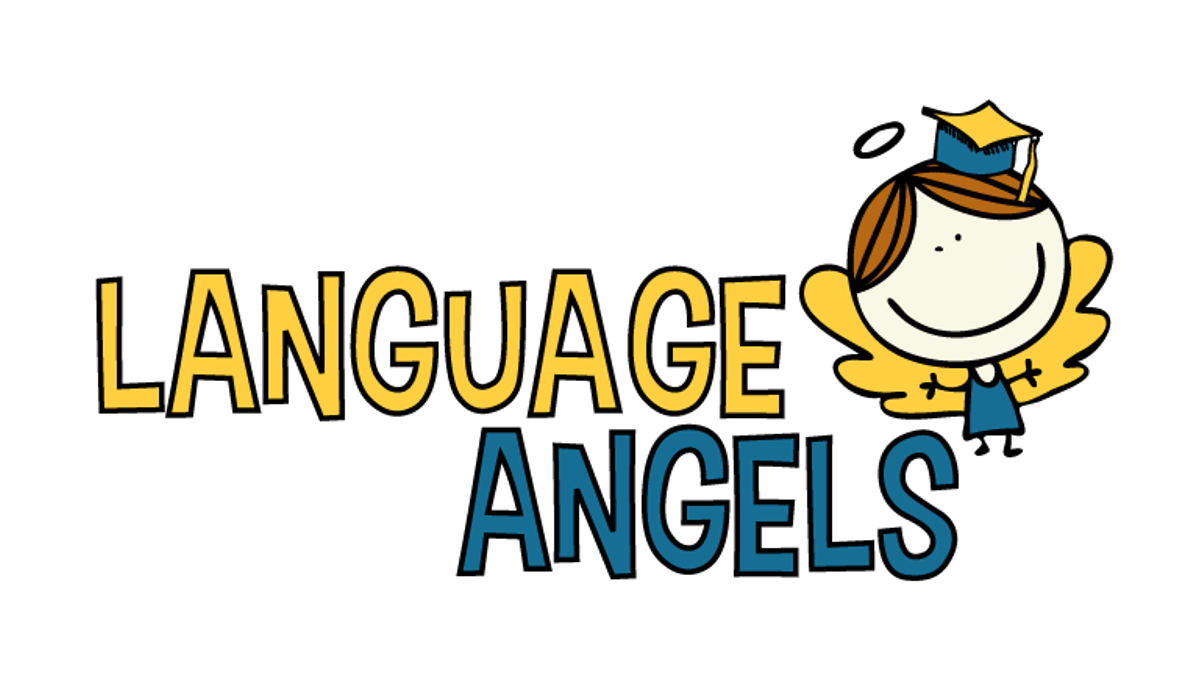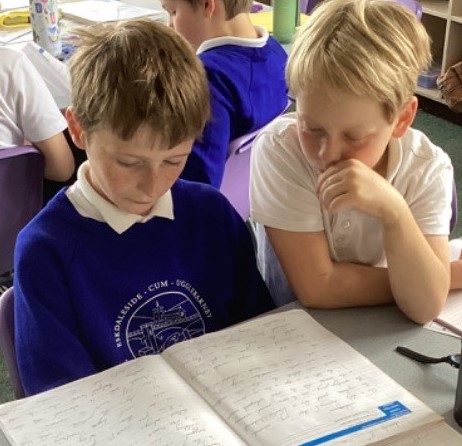The teaching of French at Sleights is underpinned by the ongoing development and acquisition of knowledge and skills. This development and acquisition occurs as a result of our own school’s curriculum sequence and progression, which maps out the core knowledge and skills children need to be highly effective linguists. French is taught from Year 3 onwards.

French is taught at Sleights based on guidance from the Language Angels programme.
Our full French policy can be found here: French Policy
French at Sleights involves:
|
From Year 3, dedicated curriculum time to engage in range of purposeful and practical experiences relating to the French language. |
|
Sequenced learning experiences, which build on prior knowledge and understanding. |
|
Explicit opportunities to develop understanding of phonics, vocabulary and grammar, related to the French language. |
|
Acquisition of skills and knowledge related to listening, speaking, reading and writing. |
Statement of French Intent:
The children at Sleights will be provided with a curriculum offer for French designed to:
- inspire and motivate children to establish a genuine interest and positive curiosity about foreign languages.
- identify crucial learning, which is placed in context and connected to other knowledge.
- gain a secure understanding of the pillars of language (phonics, vocabulary and grammar) linked to the French.
- build on and develop language knowledge and skills in a well sequenced and structured progression across their time at Sleights.
- support children’s acquisition and progressive understanding of knowledge and skills related to the French language.
- provide purposeful and practical opportunities to practise the core skills of speaking, listening, reading and writing in French.
Statement of French Implementation:
The French curriculum at Sleights focuses on the acquisition of new knowledge and building on prior learning relating to:
- the pillars of language (phonics, vocabulary and grammar) linked to the French.
- the four key language learning skills; listening, speaking, reading and
The four key language learning skills; listening, speaking, reading and writing will be taught and all necessary grammar will be covered in an age-appropriate way across the school. This will enable pupils to use and apply their learning in a variety of contexts, laying down solid foundations for future language learning and also helping the children improve overall attainment in other subject areas.
French is implemented at Sleights through:
- weekly, timetabled, high-quality lessons, which enable children with the time and opportunities to develop ongoing knowledge and skills related to the French language.
- the use of a progressive long term plan, which is organised so that children can build an increasing knowledge base of language knowledge and skills (speaking, listening, grammar, reading and writing)
- half termly units of work, focused on developing and increasing knowledge, skill and understanding of the French language.
- end of unit assessment to review progress and attainment in French. More formal assessments of speaking, listening, reading and writing skills will take place termly (on the half term).
- challenge activities in lessons to support the ongoing development and mastery of the French language.
- French reading and writing activities, placed in context, throughout each half termly unit.
During their time in Key Stage Two at Sleights, children progressively acquire, use and apply a growing bank of vocabulary, language skills and grammatical knowledge organised around age-appropriate topics and themes – building blocks of language into more complex, fluent and authentic language.
Long Term Planning
During each academic year, children complete six language blocks (one per half term). Each unit focuses on different levels of language, so that children build up skills progressively and revisit prior knowledge over Key Stage Two.
Year A
| Autumn 1 |
Autumn 2 | Spring 1 | Spring 2 | Summer 1 | Summer 2 | |
|
Phonics 1 (C) I am learning French (E) |
Nouns and Articles (G) Animals (E) |
Colours (C) Fruits (E) |
Days of the week (C) I am able… (E) |
Phonics 2 and 3 (C) In Classroom (I) |
Adjectives (G) Do you have a pet? (I) |
|
|
The Date (I) |
My Home (I) |
Habitats (I) |
Clothes (I) |
Phonics 4 (C) At School (P) |
Vikings (P) |
Year B
| Autumn 1 |
Autumn 2 | Spring 1 | Spring 2 | Summer 1 | Summer 2 | |
|
Phonics 1 (C) Instruments (E) |
Nouns and Articles (G) Seasons (E) |
Colours (C) Fruits (E) |
Days of the week (C) Ice Creams (E) |
Phonics 2 and 3 (C) Presenting Myself (I) |
Adjectives (G) Goldilocks and the Three Bears (I) |
|
|
Shapes (E) |
Vegetables (E) |
Little Red Riding Hood (E) |
Traditions and Celebrations (I) |
The Date (I) |
My Home (I) |
|
|
Family (I) |
At the team room (I) |
What is the weather? (I) |
Olympics (I) |
Phonics 4 (C) Planets (P) |
Weekend (P) |
Unit Key:
- C = Core vocabulary units
- E = Early Language
- I = Intermediate Language
- P = Progressive Language
- G = Grammatical concepts
Statement of French Impact:
As children move between classes and Key Stages, staff carefully identify the level of proficiency that children have in using and applying skills taught, including the use of tools. Before introducing or developing understanding of a skill, or use of a tool, children low stakes assessment opportunities are built into sessions to ensure a secure understanding.
The assessment journey in French is observed through ongoing review of children’s application and understanding of skills. This is identified through work completed in lessons and evidence produced. Assessment in French will be completed using peer and self-assessment ‘I can do…’ grids.
Teachers also make informed assessment decisions based on activities and learning. These assessment decisions identify whether a child is demonstrating that they are meeting the expected standard, working towards it or exceeding it.
